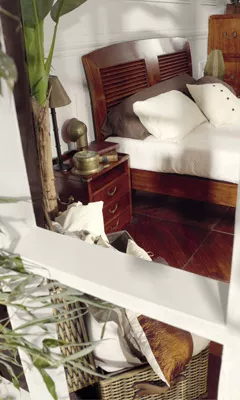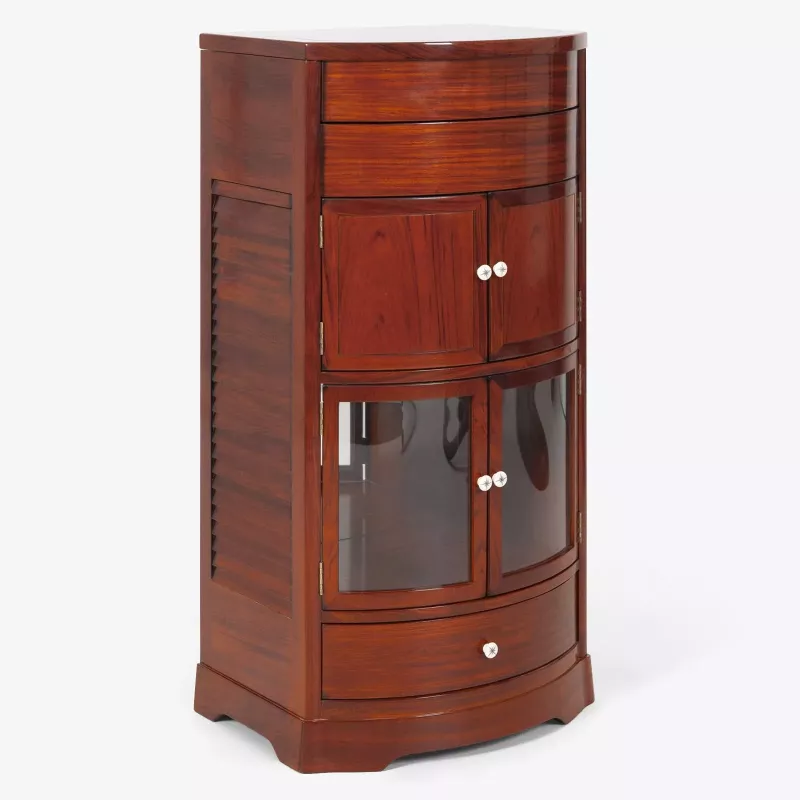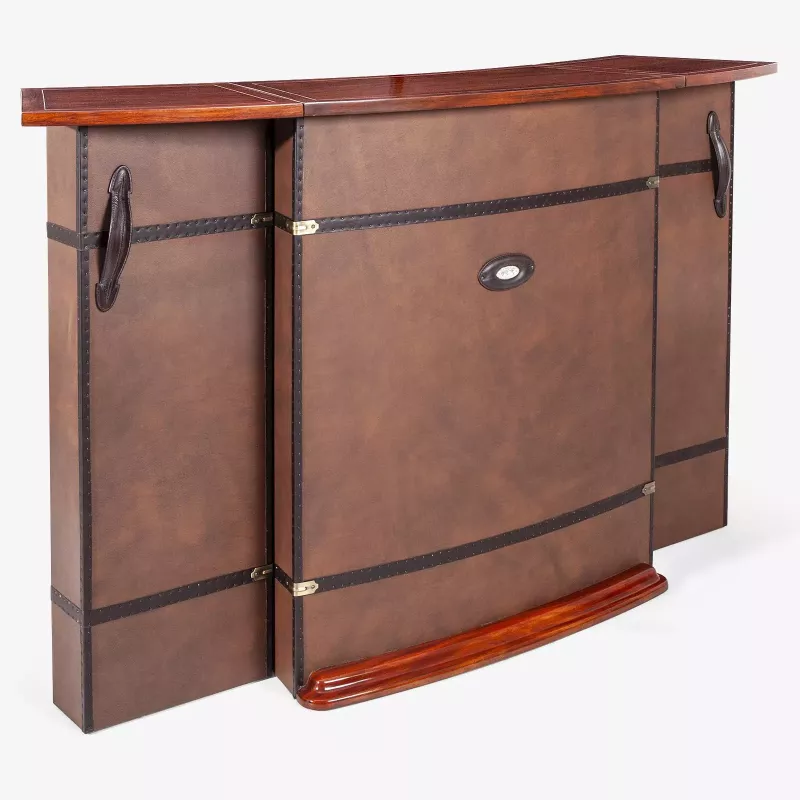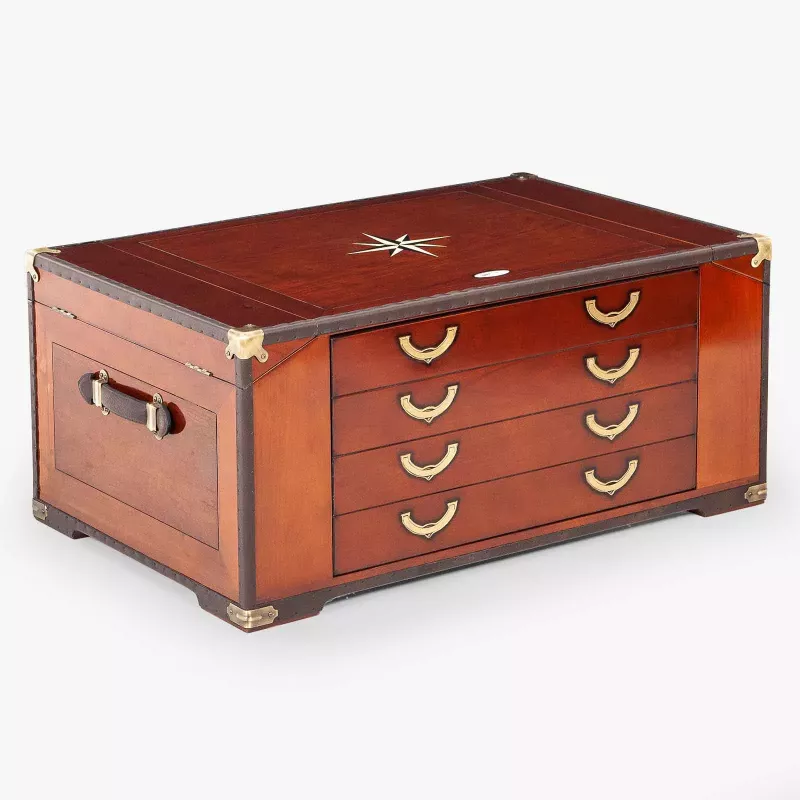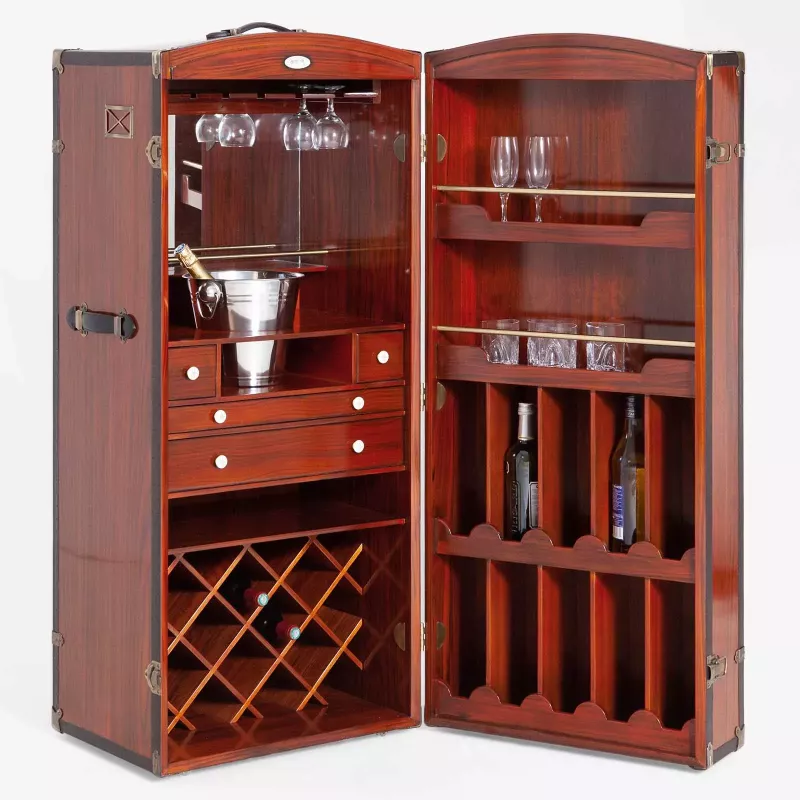CUBA - Mini bar
Reference : STAR-0072
Dimensions : W58 x D46 x H118/164 cm
Back in 1930, amidst the aromas of rum and swirls of cigar, the Art Deco style merges with the colonial influence. From this union was born a bar that could be found in the great hotels of the city.

Custom manufacturing

Premium materials

Traditional assemblies

Exceptional finishes
Product informations
Features
- 4 doors of which 2 are glazed
- 1 drawer
- 2 retractable side shelves
- Flap top with mirror
- Central opening for champagne bucket (not supplied)
Finishes
- Wood varieties : prunus avium (cherry), Entandrophragma cylindricum (sapelli), Entandrophragma utile (sipo), Juglans nigra (black walnut)
- Rosewood varnish finish
- Solid brass hardware : hinges, compass hinges
- Engraved and inked Starbay bone logo and knobs
Technical information
- Furniture delivered already assembled
- Parcel : W68 x D56 x H123 cm / 54 kg
Maintenance tips
- Remove dust with an anti-static or slightly damp cloth
- Do not apply wax to avoid clogging the varnish
- Avoid cleaning with products that could potentially be abrasive to varnish
- Always protect surfaces before applying liquids or heat
- Nourish leather with body milk (for baby ideally)

Secure
payment

Made-to-measure
delivery

Customer service
and workshops in France

Click
& Collect
You may also like
Previous
Next

